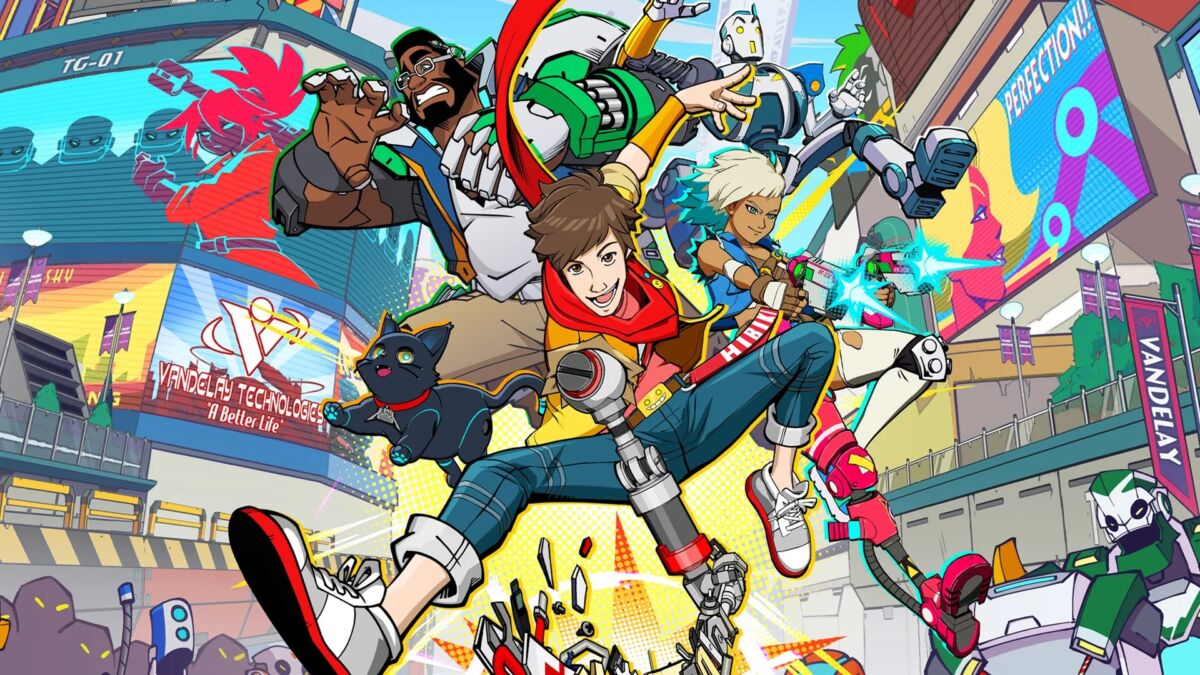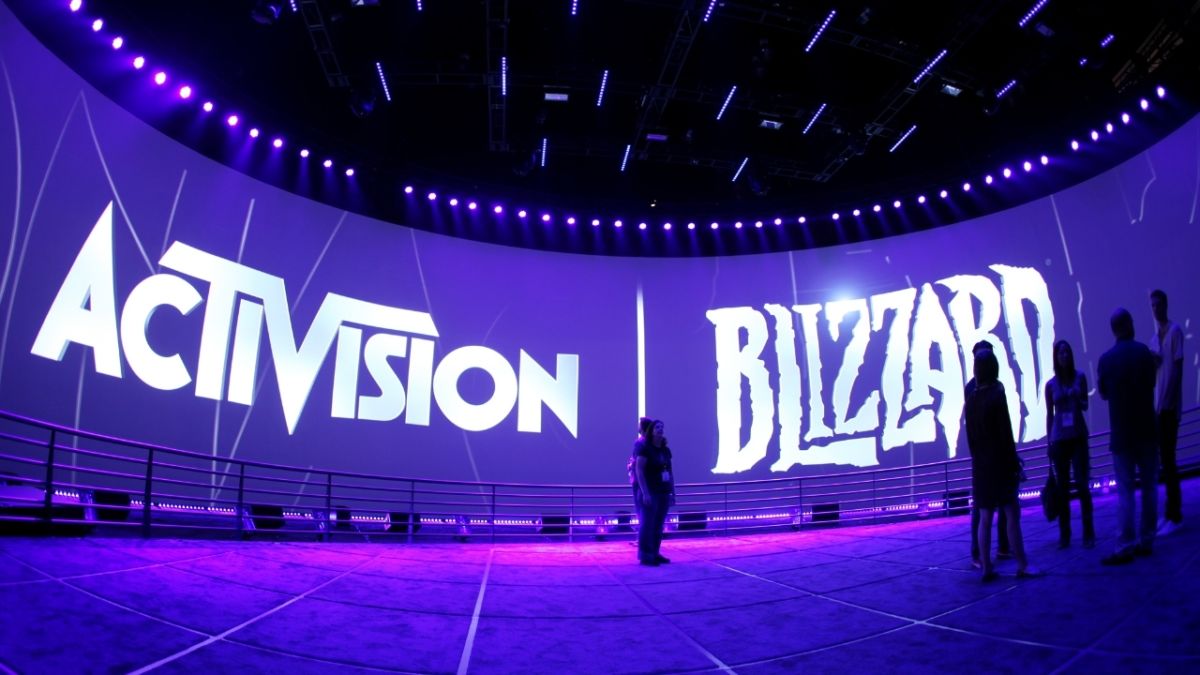Oh boy, where do we begin?
There’s a lot of reasons why you could be an Xbox fan. Backwards compatibility is pretty good, for starters, while Microsoft Rewards is a great way to make gaming a little bit cheaper for yourself. And even though a lot haven’t been at their best for a long time, their IP is some of the most important in the business. Despite the benefits though, being a fan hasn’t always been easy. Xbox has made frequent and almost catastrophic blunders over the years that have cost them huge in the long run, while we’re still waiting for the ramifications of other decisions to really bite the big green brand in the ass.
With the recent news that Microsoft is shuttering a bunch of studios, including the award-winning Arkane Austin and Tango GameWorks, we’ve decided to look back on some of Xbox’s biggest mistakes over the years. Quite frankly, looking at all of these errors in one list, it’s staggering how Xbox have been able to keep going over these yea–oh wait, yeah, the trillions of dollars of Microsoft money. What a joke. Anyway, look at these huge blunders.
1. The Xbox One, Just In General
What can we say about the reveal and launch of the Xbox One that hasn’t already been said about Liz Truss’ time as Prime Minister of the UK? This was an utter shambles from start to finish, so much so that it almost financially destroyed an established institution. You see, there’s more in common between those two than you thought, and while you might debate which one was actually worse, that time period between the reveal and launch of the Xbox One was one of the darkest periods in Xbox’s history.
The original reveal of the Xbox One touted the console as this all-singing, all-dancing media player that would become the bedrock of your living room, and while many people do use their Xbox as a media console these days, back in 2013, people only cared about the games. When the original reveal focused only on sports games and not much else, people were left wondering why they’d want to buy a console that looked like a VHS player on steroids that’d always be connected to the internet. Circle around to launch, and the paltry selection of games plus the forced inclusion of a Kinect that no one wanted, and Xbox One had a disastrous time. No wonder then head honcho Don Mattrick was given the boot pretty swiftly afterwards.
After the launch of the Xbox One, many were hoping that business would pick up for Xbox, as the studios would start to release more games that’d actually get players excited for the brand. Then those games, like Fable Legends or Scalebound, would be canceled, while games such as Sunset Overdrive, Quantum Break, Crackdown 3 and others failed to set the world alight. Even established hitters like Halo and Gears of War struggled on the Xbox One. The less said about Halo 5: Guardians, the better.
2. The Exec’s Attitude Towards Always Online During Xbox One
Xbox’s attitude and approach to the “always online” conundrum and DRM as a whole is still a mess, but during the lead up to the launch of the Xbox One, certain heads of Xbox at the time were a lot more cavalier in their defense of the Xbox One’s always online connectivity. Before the console launched, it was stated that the console would always require an online connection, and there was even talk about physical games being tied to profiles, in order to curtail sharing games between friends along with the burgeoning second hand market.
Before the Xbox One was revealed, reports were already circulating about the always online function, leading then-Microsoft Studios Creative Director Adam Orth to sarcastically tweet “Sorry, I don’t get the drama around having an ‘always on’ console. Every device now is ‘always on.’ That’s the world we live in. #dealwithit”. After receiving a massive backlash online, Orth would resign from Microsoft four days later, but it wasn’t the most egregious example.
Prior to Microsoft’s E3 2013 Press Briefing, Don Mattrick conducted an interview with GameTrailers where he was asked about the always online requirement for the Xbox One. His response didn’t exactly earn him a lot of fans: “Fortunately we have a product for people who aren’t able to get some form of connectivity; it’s called Xbox 360”. It’s a bafflingly arrogant and tone deaf statement, and while it might have been said in jest, the gaming community at large is notoriously thin-skinned regarding issues of always online connectivity and DRM. It’s a communications blunder on a massive scale that further eroded trust in Microsoft at a time where they were in desperate need of a win. No wonder Don Mattrick left Microsoft to *checks notes* join Zynga, stagnate their stock prices and leave within two years.
3. The Red Ring Of Death
Speaking of the Xbox 360, Microsoft had something of a smash hit on their hands with their second console. The Xbox 360 was on track to become a success the like of which the world has never seen the like of which, or at least be as good as the PS2 if nothing else, but Microsoft hadn’t accounted for a small flaw in the 360’s design. Or, as the case would be, several small flaws that all presented themselves in the form of the Red Ring Of Death.
The Red Ring Of Death, as it was referred to by fans in reference to Microsoft PC’s Blue Screen of Death, occurred when the Xbox 360 experienced one or more hardware faults, with the majority of those faults coming from the console overheating. This would cause the soldering on the GPU to melt and crack, bricking the console entirely. The failure rate on Xbox 360’s which experienced the Red Ring Of Death has been estimated to be around 23.7%, which is an absolutely astromonical amount of bricked Xbox 360’s. The whole thing would ultimately cost Microsoft $1.15 billion, which is quite the black eye on the company’s reputation.
4. Backing The HD-DVD
Do you remember the HD-DVD? Yeah, we don’t either really. Its only real contribution to the world of technology and culture is as the footnote of a joke in Tropic Thunder. Even in the mid-2000s, it seemed pretty clear that the Blu-Ray was the superior method for distributing and printing physical games going forward, which is why Sony implemented a Blu-Ray drive in their PS3, but Xbox just had to stick to their guns, hey?
For the Xbox 360, Microsoft decided to opt for DVD, which was definitely quite shortsighted when better technology was available, but their most baffling decision was the one to support the HD-DVD, an alternative to the Blu-Ray. Xbox released a detachable HD-DVD drive which would support the handful of movies that were available on this medium, and obviously the whole thing crashed quicker than the Hindenburg.
5. Failing To Garner Japanese Support
Xbox’s failure in Japan has been long documented over the years, as the American console manufacturer has tried to muscle its way into an Asian market that couldn’t be more apathetic to its presence. Despite Xbox’s most middling efforts, which seemed to entirely consist of Bill Gates enjoying a nice burger, the original Xbox and 360 just couldn’t establish a foothold in Japan, with the most notorious failure being how the Xbox team failed to negotiate with Resident Evil creator Shinji Mikami on the exclusive rights for RE4. Meanwhile, the Xbox One couldn’t find a foothold on a rock climbing wall, never mind the Japanese market.
With the launch of the Xbox Series X and Xbox Game Pass, the Xbox team has done a better job trying to curry favour with the Japanese audience, with big franchises like Persona, Yakuza/Like A Dragon and others finally making the jump to Xbox in recent years. Things have definitely improved for Xbox in this regard, but we’re still seeing instances of RPG releases from big hitters like Capcom and Square Enix completely skipping the Xbox platform entirely, while the Xbox Series X & S sales in the region haven’t been brilliant, especially compared to the PS5.
6. Having “No Games” For Years
It’s a weapon that’s been used in the trenches of the “console war” for years, but Xbox has earned this unshakeable reputation for “having no games”. The notion was bandied around during the Xbox One era of the brand, and while it’s factually not true, it’s more that Xbox had nothing that could compete with Sony’s exclusives. Bloodborne was one of the most popular games in the entire eighth generation of consoles, and what did Xbox have in response? ReCore? Sunset Overdrive? A HD re-release of Phantom Dust?
For the Xbox One era, the only Xbox exclusives that actually were worth a damn as far as the majority of the community were concerned were either the Forza Horizon games or Sea of Thieves, and even those aren’t perfect. For Forza in particular, their whole end-of-life licensing shenanigans are up there with some of Microsoft’s worst decisions too, as it’s hard to say you have a library worth a damn when some of the best games on it get delisted after a couple of years.
7. Shutting Down Tango GameWorks and Arkane Austin

So, you have a brand that’s got a reputation for “having no games,” that also is struggling to establish any real groundswell in the Japanese market. Fortunately, that brand managed (through the acquisition of its owner Bethesda) to acquire a Japanese developer called Tango Gameworks, known for creating weird, experimental and ultimately enjoyable games. Suddenly, you have an entry point into Japan, and a talented team who immediately get to work on releasing Ghostwire: Tokyo and Hi-Fi Rush. Now, you have a gateway to a new market, and some top-shelf games in your library, so how do you capitalize on this?
If you chose “shut the entire studio down suddenly despite the fact that Hi-Fi Rush won dozens of awards and you yourself publicly praised its success” then congratulations! You’re probably qualified to be an Xbox Executive.
The closure of Tango alone is damning, but the loss of Arkane Austin too in the same breath is absolutely crushing. The folks there might not have nailed it with Redfall, but those who’ve followed the team since Dishonored and Prey know that their wheelhouse is in immersive sims. Asking them to create a rote co-op FPS seems like a mismanagement of resources from the top brass, but again, we’re not Xbox Executives. If we were, we’d probably have made different decisions.
8. The Duke

In the grand scheme of things, the original Xbox controller is much more of a light-hearted mistake compared to others on this list, but with that being said: who was on the internal QA team at Microsoft back in the early 2000s? The Harlem GlobeTrotters? The original Xbox’s controller is famously big, so much so that it’d probably make The Girthmaster feel insecure. Anyone who’s afflicted with the debilitating curse known as “tiny hands” struggled to use this massive thing, making Xbox an uncomfortable platform for a lot of gamers.
It’s safe to say that Xbox nearly spawn killed their console ambitions with that god awful controller, with the controller’s creator, Seamus Blackley, having objects thrown at him from a live crowd when the controller was first announced on stage. Meanwhile, IGN consider the controller to be the second worst one ever made, just behind the Atari Jaguar controller. Still, the fact that Blackley managed to release an improved version of The Duke on the Xbox One as a joke is pretty funny though.
9. Releasing Games On Multiple Platforms
On the surface, this point looks like we’re calling the idea of more gamers having access to more games a bad idea, which isn’t what we’re saying. In theory, the idea of Xbox games being available on multiple platforms like PlayStation makes sense, at least in certain situations. Sea of Thieves is a multiplayer game that’s been around for six years now, so an influx of PlayStation players would help the game thrive to reach a decade at least. Smaller AA games that wouldn’t earn huge amounts of money, like Hi-Fi Rush, should make sense to launch on additional platforms to help recoup development costs, but apparently that still won’t stop the studio from being shut down so what the hell do we know?
The point is, Xbox isn’t necessarily wrong for wanting to bring games to PlayStation, but it seems like they’re about to go into overdrive. Reports (or at least rumors) of Xbox exploring the idea of porting pretty much every game in their portfolio to the PlayStation have emerged, and while we don’t know if there’s any truth to it, the mere idea of it is plausible enough.
This of course leads to the idea that Xbox fans shouldn’t even bother buying the next Xbox, or any future Xbox product; a complaint that’s already been levied at Xbox for years given that every first-party exclusive also launches on PC day one. If those games are also going to be available on PlayStation or Nintendo consoles, there’s really no point in owning an Xbox, unless you’re on Game Pass. Microsoft is just overextending themselves and they’ll get nothing in return either. Do you think Smash Bros. or Spider-Man are going to be available on Xbox anytime soon? Not likely, but we’re about two steps away from Master Chief wearing blue instead of green.
10. Buying Activision Blizzard King
$69 billion is a lot of money to be throwing around, and what have Xbox had to show for the much-challenged acquisition of Activision Blizzard King? Toys For Bob filed to be an independent studio, while three months after the conglomerate was acquired, 1,900 employees were laid off across ABK. But hey, at least Call of Duty is coming to the Switch. That’s surely worth nearly two thousand people losing their livelihoods in an industry where employees have been dropping like flies.
This came after Microsoft announced layoffs in 2023 that affected 10,000 people across all sectors, despite the fact that Microsoft is valued as a trillion dollar company. Apparently, having more money than most countries in the world isn’t enough when some shareholders decide they want an extra digit next to their share prices, and it’s always the common worker who has to deal with the consequences. Remember when former Nintendo CEO Satoru Iwata took a 50% paycut after the Wii U flopped, just to keep a fully-staffed Nintendo? Phil Spencer and all the other CEOs who’ve laid off employees seem kind of spineless by comparison.
The point here is that when the acquisition of ABK was announced, some people heralded it as part of Xbox’s plan to increase their game’s library and diversify their portfolio, while others considered it an indicator of Xbox’s plans to create some kind of monopoly of gaming studios. The reality of the matter is that there was never a plan. It was just a $69 billion gamble on taking the Call of Duty-shaped Golden Egg away from Sony, and now thousands of unfortunate employees have been forced to pay the cost.
READ NEXT: 10 More Games Ruined By Stupid Release Dates
Some of the coverage you find on Cultured Vultures contains affiliate links, which provide us with small commissions based on purchases made from visiting our site. We cover gaming news, movie reviews, wrestling and much more.





